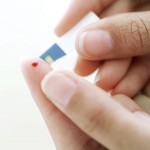Early Menopause May Increase Risk of Type 2

A Dutch study found that women who went through menopause before age 40 were almost four times as likely to develop type 2 diabetes as women whose menopause was at 55 or older. (The average age for menopause in the U.S. is 51.) While the study doesn’t show a cause-and-effect relationship, it is grounds for […]

















